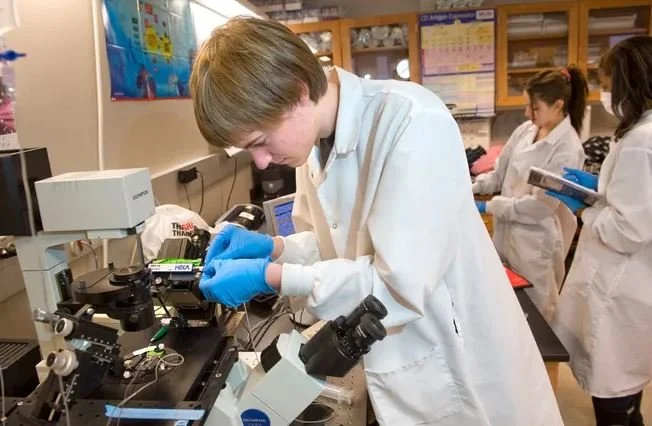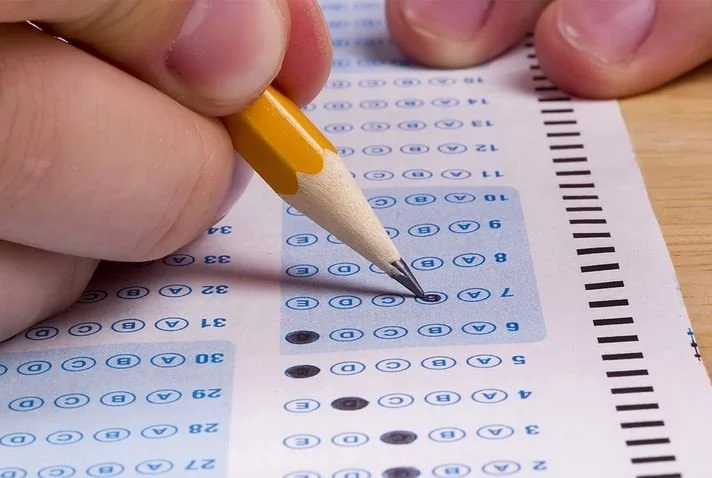The Top 12 Qualities Colleges Look For
Updated December 2023
Summary: Universities can say they’re looking for this or that in applicants, but the proof is in the pudding. A 2020 survey of over 2,000 college consultants spilled the beans on what top universities actually prioritize when it comes to selective college admissions.
What do you want from me?
While top universities may claim on their website that they’re looking for all kinds of different things when it comes to freshman applicants — a collaborative personality, a devotion to community service, proof that you’re open-minded and tolerant — it’s tough to separate fact from fiction, or know what they truly prioritize.
To find out, the IECA (Independent Educational Consultants Association) polled its more than 2,000 members nationwide back in 2020 and asked them point-blank: You guys are college consultants. You deal with tens of thousands of college applicants every year. More than anyone, you have firsthand, intimate knowledge of which high school students get in and which students do not. Rank the Top 12 most important factors for college admissions, from first to last.
Here’s the results of their survey.
#1. A rigorous high school curriculum
Two thousand independent college consultants confirmed that a student’s high school courseload is the key to getting into a top university. More than anything, colleges want to see evidence that high school students are pushing themselves academically as much as possible, even if it means getting less-than-perfect grades.
This thirst for knowledge, and this hunger for academic challenges, is top of their list when evaluating candidates. Your 4.0 GPA won’t look so great if you elected not to take many honor-level classes. And if you don’t have AP or IB or Honors classes available to you, that’s okay. You won’t be penalized. Just take the hardest courses your school has to offer. (And maybe consider taking some extra college courses or “dual enrollment” courses for credit.)
#2. A high GPA, especially in major subjects
This is no surprise. Everyone knows that top universities want students with stellar GPAs. But it’s important to note that if you get some less-than-perfect grades in minor subjects, it won’t mean the end of the world for you. Let’s say you’re a top Math and Science student who’s getting straight A’s and scoring 5’s on all of your Calculus, Physics and Chemistry AP tests. What happens if you slip-up and get a B+ in Honors English, or a B in AP French?
So you end up with a 3.8 GPA instead of a perfect 4.0 GPA, but the fact that you took all the hardest courses you could, and excelled in your areas of strength, will be more than enough to get you into a top school. In others words, minor slip-ups on an otherwise exceptional record won’t hurt you at all. No one’s perfect, and you don’t need to be either. Exceptional, yes. Perfect, no. Just take the highest-level courses available, and do you best.
#3. High scores on standardized tests (ACT or SAT)
Yes, most universities are “test-optional” these days, meaning you can include test scores on your application if you want to, but you don’t have to. And some universities (like those in the University of California system: UCLA, Berkeley, etc.) are presently “test-blind,” which means they won’t look at your scores at all for the application process (although they will review them for scholarship opportunities after-the-fact if you want them too).
Still, a strong showing on either the SAT or ACT (it doesn’t matter which one) will improve your odds of getting admitted. Not sure whether to include your scores or not? Use this simple guide: Look up the average score for incoming freshman at a particular school on their website. If your combined score is better than their average, submit your score. If your combined score is below their average, keep it to yourself. The more your score improves their overall class average, the more it will help your application. Since you want every advantage you can to muster, study hard for the test, and submit it wherever it helps you.
As a general rule, the more competitive the school, the more they want to see your test scores. Consider the Class of 2026. At top schools like Yale, 88% of accepted students submitted either the SAT (59%) or ACT (29%). And at UPenn, 71% of accepted students submitted either the SAT (48%) or ACT (23%). That means, these elite schools overwhelmingly prioritize students who submit their scores.
But slightly less competitive schools are more forgiving. At Northeastern, 44% of accepted students submitted either the SAT (33%) or ACT (11%). At Tulane, 50% of accepted students submitted either the SAT (16%) or ACT (34%). So you have more flexibility with those schools. (NOTE: It doesn’t matter which test you submit! The SAT is simply more popular in some regions of the country, whereas the ACT is more popular in others.)
#4. Passionate involvement in a few meaningful activities
While academic achievement is paramount, top universities are also looking for students who have “fire in their belly.” That means that they deeply care about something other than just grades, and they devote a significant amount of time and energy to one or more of these deeply personal projects. It doesn’t really matter what it is. It can be Model UN, or Science Olympiad, or Composing Musicals, or Starting a Business, or Taking your Lacrosse Team to Nationals, or Founding a Nonprofit.
What’s important is that this is something that gets you out of bed in the morning, and keeps you up at night. It’s a good obsession. It brings you joy, it provides personal growth, it constantly tests what you’re made of. If you’re passionate, committed, and you’ve excelled, that’s a golden ticket to admissions.
#5. Great college essays
There’s no way around it: you need phenomenal college essays. Without a great essay, you are just facts and figures on a page, largely indistinguishable from everyone else. Your essay is your first and sometimes only opportunity to show the person behind the application. Who are you? What drives you? What makes you different? How will you add immediate value to campus? What about your high school record suggests you’re destined to achieve great things in life? The purpose of your college essay to set you apart from everyone else, and convince the admissions committee that you’re exactly the type of student they need to have.
#6. Leadership
Top universities know that the vast majority of people are followers, while only a very small sliver of the population are true leaders. They want to attract leaders who will become the game-changers, thought-leaders, and disruptors of tomorrow. So they look for students who hold impressive leadership positions in high school. The key here is to focus on quality over quantity. Being Vice President of a dozen different school organizations will make your contributions feel thin. Conversely, if you started your own business or nonprofit and now employ 15 part-time workers across your state, that one leadership position will make you look like a rock star.
#7. Diversity
This is more important than ever. Universities are extremely interested in creating a student body that represents a wide variety of demographic and personal characteristics. They want some rich students and some poor students, some in-state students and some international students from the opposite side of the world; some legacy students and some first-generation students; they want students of all different colors and backgrounds and religions; they want students with different viewpoints, sexual orientations, and identities.
While you can’t “make yourself more diverse,” you can talk to a college consultant or research each university’s website to see what areas they’re trying to improve. What areas are under-represented? NYU (New York University), for example, has a hard time drawing students from rural backgrounds. If you live in Alaska or come from a farm in Nebraska, that could be something to play-up in your NYU application. Remember that diversity takes many forms.
#8. Strong teacher recommendations
The best way for universities to assess what it’s really like to have you in their class is to hear from people who actually have had you in their class. What’s important is not only that you get glowing references from teachers who teach major subjects (rather than electives), but that these teachers or counselors can actually speak to some of your personal attributes as well.
Universities want to know not only what you’re like as a student, but as a human being. Are you kind? Dogged? Helpful? Resilient? Ethical? Hopelessly curious? The more opportunities a teacher has to observe you — in honors projects, on group collaborations, as a mentor, as a faculty advisor — the better they’ll be able to write a specific and detailed recommendation that sings your praises.
#9. Special talents that contribute to campus life
You have to be selfish to some degree in order to excel: you need to dedicate extensive time to your studies and passion projects. But top universities don’t want a bunch of students who just hide out in the library or the science lab all the time. They want students who contribute to campus life. Maybe they’ll lead the swimming team to a national title, or maybe they’ll be the editor of the school paper, or launch a campus campaign to improve work conditions for local farmers, etc. They want students who will be able to make immediate contributions to campus in a way that no one else can.
#10. Intellectual curiosity
Universities are first and foremost learning institutions. They want students who love to learn for the sake of learning. Yes, most students want to earn a degree so they can go out in the world and get a decent-paying job. But universities try not to think about that. They’d rather not be job factories for dead-eyed students. That’s uninspiring. They want to attract students who are passionate about learning about the world and all of its beauties and mysteries. They want students who are endlessly curious. That’s usually students who read a lot, love research, or otherwise pursue extracurricular activities that stimulate their curiosity. Be that.
#11. Good moral values
Top colleges don’t want jerks; it’s as simple as that. You might be very bright, but if you’re obnoxiously arrogant, contemptuous, mean or selfish, there’s a good chance the best universities will all pass on you. Why? Because campus communities are too small and life is too short. Plus, the top schools have more than enough highly-qualified applicants to fill your spot. You need them more than they need you. So, if you do have some rough edges, make sure you work with a qualified editor on your college essays to make you seem more appealing.
#12. Demonstrated interest in the college
Some universities claim that they don’t take “demonstrated interest” into consideration when evaluating applicants. The reason for this, presumably, is that they don’t want, and can’t afford, to have 50,000 high school students cold-calling everyone on their admissions committee telling them how much they want to go there. It’s impractical.
However, savvy applicants know that universities are looking for candidates who will be a good “fit” for their campus, and who really want to go there. And what better way to prove you’re a fit than by visiting the campus, talking with current students, familiarizing yourself with professors and coaches, and making sure they know about you? You have to do it selectively, tactfully and strategically, but demonstrating interest will almost always improve your odds.
Conclusion
Job #1 for high school students is to be an academic rock star: take the hardest courses available, get the best grades you can, study hard for your SAT or ACT, and get excellent teacher recommendations. Beyond that, find one or two areas to excel outside of the classroom: something that’s personally meaningful for you, and gives you opportunities to grow and shine. Finally, drive it all home in some beautifully crafted college essays, to let them know there’s no one quite like you.
Just like American Idol winner Adam Lambert, college applicants are dying to ask universities: Whataya Want From Me?
Above all else, universities are looking for academic rock stars: students who take the hardest courses, and do their best to excel in all of them.
Though many universities are currently test-optional, a strong showing on the SAT or ACT is an excellent way to demonstrate your academic ability.
You don’t need a hundred different activities; just one or two meaningful ones that demonstrate deep passion and rare accomplishment.
Universities are hungry for students whose demographics, viewpoints, identities, or cultures are sorely under-represented on campus.
One of the top personality traits college look for is intellectual curiosity: Are you the type of person who has an insatiable appetite for knowledge?
Colleges want to know if you’ll be a good fit for their campus: Have you toured the school, talked with any students, built a rapport with any professors, done your research about why it’s the perfect school for you?






